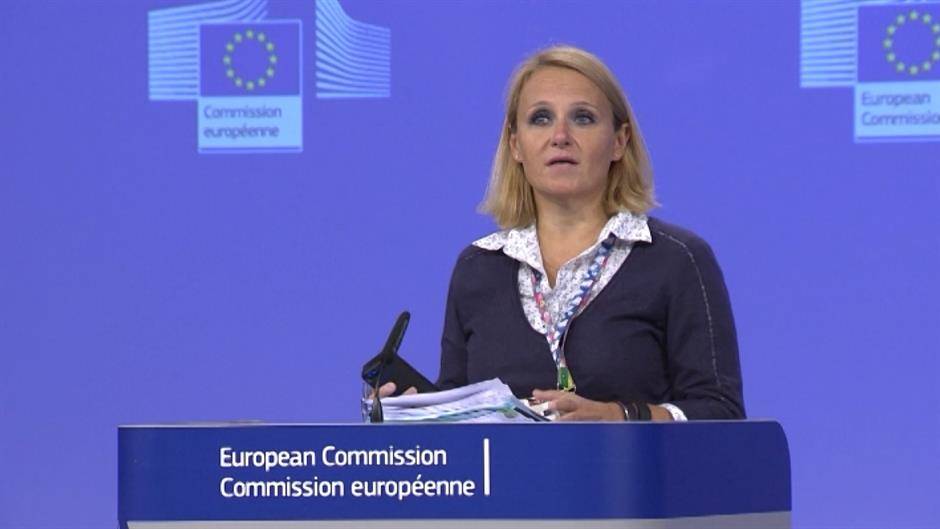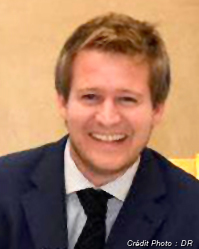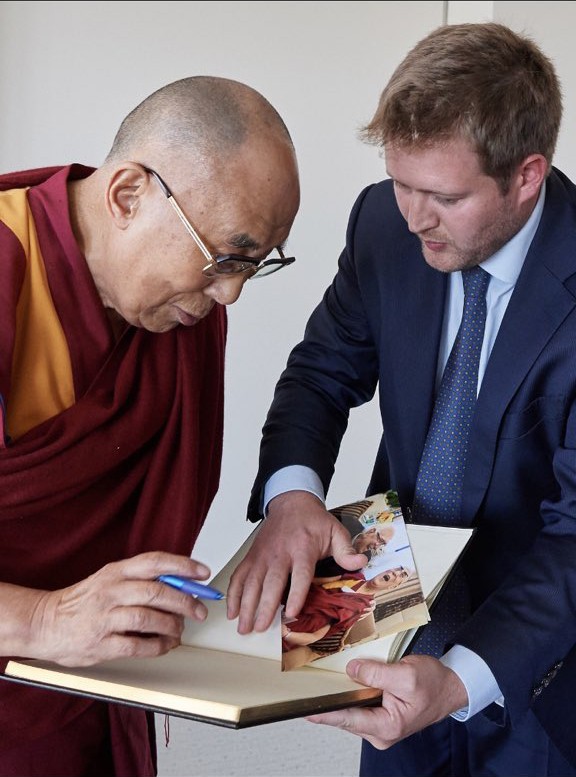On Monday 4th March 2019, the European Union and Vietnam held their annual human rights dialogue in Brussels. This is the 8th time the EU and Vietnam have held these high-level dialogues, which take place alternatively in Brussels and Hanoi. On this occasion, Radio Free Asia spoke with Maya Kocijancic, EU spokesperson on Foreign Affairs and Foreign Policy and Umberto Gambini, head of staff of MEP Ramon Tremosa i Balcells to hear their views about the content and purpose of the dialogue, and how effective it is in promoting human rights progress in Vietnam.

RFA: Maya Kocijancic, could you tell me what were the main issues discussed at the EU-Vietnam Human Rights Dialogue on Monday ?
Maya Kocijancic: Indeed, the EU and Vietnam held the annual human rights dialogue yesterday in Brussels. We discussed a wide range of issues related to freedom of expression, cybersecurity, the death penalty, environmental and labour eights, cooperation within the United Nations framework.
RFA: What was the Vietnamese delegation’s reaction to the issues you raised?
Maya Kocijancic: I would look at it from a different point of view. I think it is important to have these regular dialogues, because they give us an opportunity to bring up very concrete cases of prisoners of conscience, but also to detect ongoing trends. We have observed some positive trends in Vietnam but also some negative developments. On the positive side, over the past 20 years, reform and modernization have helped Vietnam to make progress in building a more prosperous and dynamic society and improve sectors such as education, health services, and make progress in social and economic rights.
On the other hand we have seen some negative developments in terms of freedom of expression, both online and offline, freedom of assembly, association, press, and religion or belief. These developments are very worrying. For example, some of the new laws passed in Vietnam have actually hampered the exercise of fundamental freedoms. There are reports of human rights defenders subjected to intimidations, torture, very severe prison sentences for exercising their right to freedom of expression. We raised all this very clearly. We demand the release of these people, we insist on the importance of access to lawyers, family visits etc. We let the delegation know that we expect action, but that has to happen inside the country. This is why we not only have the dialogue, but many other actions to press for human rights in Vietnam.
RFA: What other actions do you have in connection to the dialogue?
Maya Kocijancic: During the visit, the Vietnamese delegation visited the European Parliament to see how democracy in Europe works. And before each dialogue, we always organize consultations with civil society in Europe and in Vietnam. This is an essential part of the main human rights dialogue.
Radio Free Asia (RFA): Umberto Gambini, you are Head of Office to MEP Ramon Tremosa. Your office has been very involved in Vietnam, and MEP Tremosa signed a letter with 32 other MEPs from all political parties calling on the EU to press for human rights improvements. What is your assessment of the human rights situation in Vietnam today?

Umberto Gambini: Yes, nice to speak to you, and hello to all citizens and friends in Vietnam and Asia. We follow Vietnam very closely. The European Union is in the process of negotiating and finalizing a future trade agreement with Vietnam, but as Liberals we pay very much attention to human rights, religious freedom, civil society activities, and we are very concerned about the evolution of this situation. As we understand it, things are far from perfect and they are not improving as fast as we would like. We know that religious freedom is not good, Buddhist monk Thich Quang Do is still under house arrest. We know there is a new Cybersecurity Law that places heavy restrictions on freedom of expression online and offline. We know that civil society leaders are incarcerated for expressing themselves. This is not the way Southeast Asia should be moving. We think that a free Vietnam is a greater Vietnam. The Vietnamese regime and government should not be afraid of a pluralistic society. We believe there are many problems to be solved.
RFA: You mentioned that, the EU is finalizing a Free Trade Agreement with Vietnam, which needs the approval of the European Parliament. What is the status of this today?
Umberto Gambini: As you know, the EP’s mandate ends in May, and there will be European elections for a new Parliament. So it will be for the new European Parliament to decide whether they should ratify the agreement, and to decide if Vietnam has made enough progress or not. The current EU Commissioner Cecilia Malstrom cares a lot about human rights, and she is working hard on this agreement. I think we should trust her. But it is up to the next Parliament to decide. The FTA should come before the Council of Europe in May, and then later before the new Parliament. Of course, this may change, but this is what we hear from the current Rumanian Presidency.
RFA : But do you think the EP will take human rights into account when they decide on this free trade agreement?
Umberto Gambini: Of course, of course. The modern Free Trade Agreements have a chapter on sustainability and human rights. This chapter is binding. So definitely, Parliament will make the European Commission accountable to ensure Vietnam respects this. You know, agreements can be suspended when there are violations of human rights. Take Cambodia for example – the EU has just suspended preferential tariffs to Cambodia because of gross violations of human rights. So Vietnam should look at what’s happening to its neighbours. This is what we are pushing for in Parliament. Trade agreements are not just words, and there are severe consequences if you do not respect the rules.
RFA: One last question – what do you think about the EU-Vietnam Human Rights Dialogue? Is it a useful process or just a smokescreen that Vietnam uses to pretend it cares about human rights?
Umberto Gambini: Listen, I think that dialogue channels should always be open. Even the Dalai Lama, whom I have met along with our friends Marco Pannella and Emma Bonino, continues to dialogue with China. Although China is not exactly accommodating on Tibet, he still believes in dialogue. Of course, no-one is blind, and we must press to make sure things move in the right direction. But I don’t think it helps to stop talking. It’s like in a couple. I think we should continue to talk to each other.

This post is also available in: Vietnamese
 Quê Me Quê Me: Action for democracy in Vietnam & Vietnam Committee on Human Rights
Quê Me Quê Me: Action for democracy in Vietnam & Vietnam Committee on Human Rights




